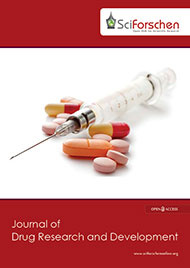
Professor of Psychiatry
-
The Chinese University of Hong Kong
Hong Kong, China
Phone: (852) 2636-7754
E-mail: tangwk@cuhk.edu.hk
Education
| 2003-2005 | Doctor of Medicine | The Chinese University of Hong Kong |
| 1986-1991 | MB, ChB | The Chinese University of Hong Kong |
Biography
Professor WK Tang was appointed to professor in the Department of Psychiatry, the Chinese University of Hong Kong in 2011. His main research areas are Addictions and Neuropsychiatry in Stroke. He has published over 100 papers in renowned journals, and has also contributed to the peer review of 40 journals. He has secured over 20 major competitive research grants. He has served the editorial boards of five scientific journals. He was also a recipient of the Young Researcher Award in 2007, awarded by the Chinese University of Hong Kong.
Research Interest
- Neuropsychiatry in Stroke especially post stroke depression
- Substance Use Disorders especially ketamine use disorder
- General Adult Psychiatry including schizophrenia and electroconvulsive therapy
Scientific Activities
Teaching Experience
| 2011-Present | Professor, The Chinese University of Hong Kong |
| 2007-2011 | Professor 2, The Chinese University of Hong Kong |
| 2002-2007 | Associate Professor, The Chinese University of Hong Kong |
| 1999-2001 | Assistant Professor, The Chinese University of Hong Kong |
| 1992-1999 | Medical Officer, The Hospital Authority |
Professional Activities
Membership for Professional Organizations
| 1997-Present | MRCPsych, The Royal College of Psychiatrists |
| 2001-Present | FHKCPsych, The Hong Kong College of Psychiatrists |
| 2001-Present | FHKAM (Psychiatry), The Hong Kong Academy of Medicine |
Publications
- Zhang CX, Tang WK, Liang HJ, Ungvari GS, Lin SK. Other drug use does not impact cognitive impairments in chronic ketamine users. Drug and Alcohol Dependence. 2018 April 186: 1-8.
- Tang KLA, Liang H, Lin Y, Zhang C, Tang WK, Chu WCW, Ungvari GS. Persistent parkinsonism after high dose intravenous methamphetamine: A case report. Neurology Asia 2017 Mar; 22(1): 77-80.
- Lin Y, Tang WK, Liang HJ, Tang A, Ungvari GS. Psychiatric Morbidity in Dependent Z-drugs and Benzodiazepine Users. International Journal of Mental Health and Addiction. 2017 Jun; 15: 555-564.
- Tang WK, Liang HJ, Yong L, Zhang C, Tang A, Chan F, Freeman T, Ungvari GS. Psychiatric Co-morbidity in Ketamine and Methamphetamine Dependence: A retrospective chart review. International Journal of Mental Health and Addiction.2017:15; 956-966.
- Liang HJ, Lin Y, Zhang C, Ungvari GS, Tang WK. Drug addiction: A big challenge world-wide. East Asian Archives of Psychiatry 2016; 26: 43-44.
- Lin Y, Liang HJ, Zhang C, Ungvari GS, Tang WK. Ketamine Misuse in Hong Kong. Hong Kong. Medical Diary 2016; 21(3).
- Tang WK, Morgan CJA, Lau GC, Liang HJ, Tang A, Ungvari GS. Psychiatric morbidity in ketamine users attending counseling and youth outreach services. Substance Abuse2015; 36(1): 67-74.
- Lau CG, Tang WK, Hao W, Lin Y, Liang HJ, Tang A, Ungvari GS. Six-month Outcomes for Patients Attending a Substance Abuse Clinic in Hong Kong: A Retrospective Study. Journal of Alcoholism & Drug Dependence 2014; 2: 155.
- Liang HJ, Lau CG, Tang A, Chan F, Ungvari GS, Tang WK.Are Sexes Affected Differently by Ketamine? An Exploratory Study in Ketamine Users. Substance Use and Misuse. 2014;49(4): 395-404.
- Tang WK, Liang HJ, Lau CG, Tang A, Ungvari GS. Relationship between cognitive impairment and depressive symptoms in current ketamine users. Journal of Studies on Alcohol and Drugs2013; 74(3): 460-468.
- Tang WK, Lam M, Leung WN, Sun WZ, Chan TT, Ungvari GS. Traditional Chinese Medicine Diagnoses in Persons with Ketamine Abuse. Journal of Traditional Chinese Medicine 2013; 33(2): 164-9.
- Liang HJ, Lau CG, Tang A, Chan F, Ungvari GS, Tang WK.Cognitive impairments in poly-drug ketamine users. Addictive Behaviors 2013; 38(11): 2661-2666.
- Tang AK, Tang WK, Liang HJ, Chan F, Mak SC, Ungvari GS. Clinical characteristics of cough mixture abusers referred to three substance abuse clinics in Hong Kong: a retrospective study. East Asian Archives of Psychiatry 2012; 22(4): 154-155.
- Tang A, Liang HJ, Ungvari GS, Tang WK. Referral patterns and clinical characteristics of clients referred to Substance Abuse Clinic of a Regional Hospital in Hong Kong. East Asian Archives of Psychiatry. 2011; 21(1): 28-31.
- Tang A, Cheung RY, Liang HJ, Ungvari GS, Tang WK. Psychiatric morbidity at a female residential drug treatment centre in Hong Kong. East Asian Archives of Psychiatry. 2011; 21(1): 22-27.
- Tang WK, Lum CM, Ungvari GS, Chiu HF. Alcohol Consumption, Lung Function, and Quality of Life in Pneumoconiosis. Alcoholism: Clinical and Experimental Research2005; 29(7): 1230-1236.
- Liang HJ, Ungvari GS, Lee TSH, Tang WK. Ketamine Addiction. Dual Diagnosis: Open Access. 2018 Feb; 3: 1(3).
- Liang HJ, Tang KL, Chan F, Ungvari GS, Tang WK. Ketamine users have high rates of psychosis and/or depression. Journal of Addictive Nursing 2015; 26(1): 8-13.
- Liang HJ, Lau CG, Tang A, Chan F, Ungvari GS, Tang WK. Are Sexes Affected Differently by Ketamine? An Exploratory Study in Ketamine Users. Substance Use and Misuse. 2014; 49(4): 395-404.

